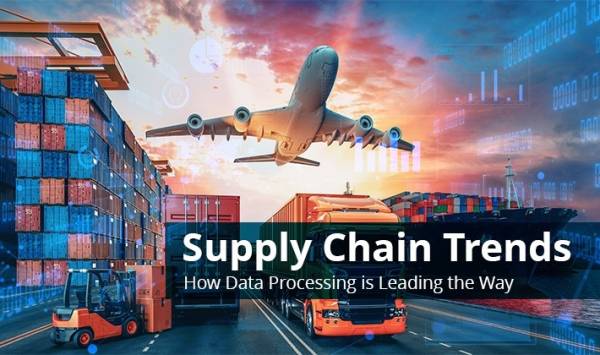With the advancement of technologies and data-driven procedures, the supply chain industry is going through a substantial transition. Particularly data processing is revolutionizing how supply chains work, allowing companies to maximize efficiency, cut costs, and improve overall performance. In this article, you will learn how the future of supply chain management is examined, along with how data processing is a key factor in fostering success and innovation.
7 Top Trends in Supply Chain Management
1. Real-Time Visibility and Tracking
Data processing technologies provide real-time visibility and tracking capabilities throughout the supply chain. By integrating various data sources, such as IoT sensors, GPS tracking, and inventory management systems, businesses can gain accurate insights into the location, condition, and status of goods at any given time. This enables proactive decision-making, reduces delays, and improves customer satisfaction.
2. Predictive Analytics for Demand Forecasting
Data processing empowers supply chain managers with advanced predictive analytics tools. By analyzing historical data, market trends, and customer behavior patterns, businesses can make more accurate demand forecasts. This enables proactive inventory management, reducing stockouts and overstock situations, optimizing production planning, and ensuring timely order fulfillment.
3. Enhanced Collaboration and Communication
Data processing fosters seamless collaboration and communication within the supply chain ecosystem. By integrating data from suppliers, manufacturers, logistics providers, and customers, businesses can achieve end-to-end visibility and facilitate real-time information sharing. This enables faster problem-solving, improved coordination, and efficient decision-making, ultimately enhancing overall supply chain efficiency.
4. Efficient Inventory Management
Data processing technologies enable intelligent inventory management systems. By analyzing data on product demand, lead times, production cycles, and supplier performance, businesses can optimize inventory levels and reduce carrying costs. Automated replenishment systems can be implemented based on real-time data, ensuring optimal stock levels while minimizing excess inventory.
5. Risk Mitigation and Resilience
Data processing plays a crucial role in identifying and mitigating risks within the supply chain. By analyzing data from multiple sources, including weather forecasts, geopolitical events, and supplier performance, businesses can proactively identify potential disruptions and take pre-emptive measures. This allows for the development of resilient supply chain strategies and the ability to respond swiftly to unforeseen events.
6. Sustainability and Environmental Impact
Data processing facilitates sustainability initiatives within the supply chain. By analyzing data related to energy consumption, emissions, transportation routes, and packaging materials, businesses can identify areas for improvement and implement environmentally friendly practices. Optimized routing and consolidation strategies can reduce carbon footprints, while data-driven decision-making supports sustainable sourcing and waste reduction.
7. Blockchain and Transparency
Data processing, combined with blockchain technology, enables enhanced transparency and traceability within the supply chain. By recording and validating transactions and data across multiple nodes, businesses can establish trust and accountability. This facilitates secure and transparent tracking of products, verifying authenticity, ethical sourcing, and compliance with regulations, leading to increased customer confidence.
Conclusion
Data processing is transforming the supply chain landscape, empowering businesses to optimize operations, enhance efficiency, and respond to market demands with agility. Real-time visibility, predictive analytics, efficient inventory management, and sustainability initiatives are just a few areas where data processing is making a significant impact. As technology continues to evolve, harnessing the power of data processing will be essential for businesses to thrive in the future of supply chain management. Contact us to harness the real power of your data.





